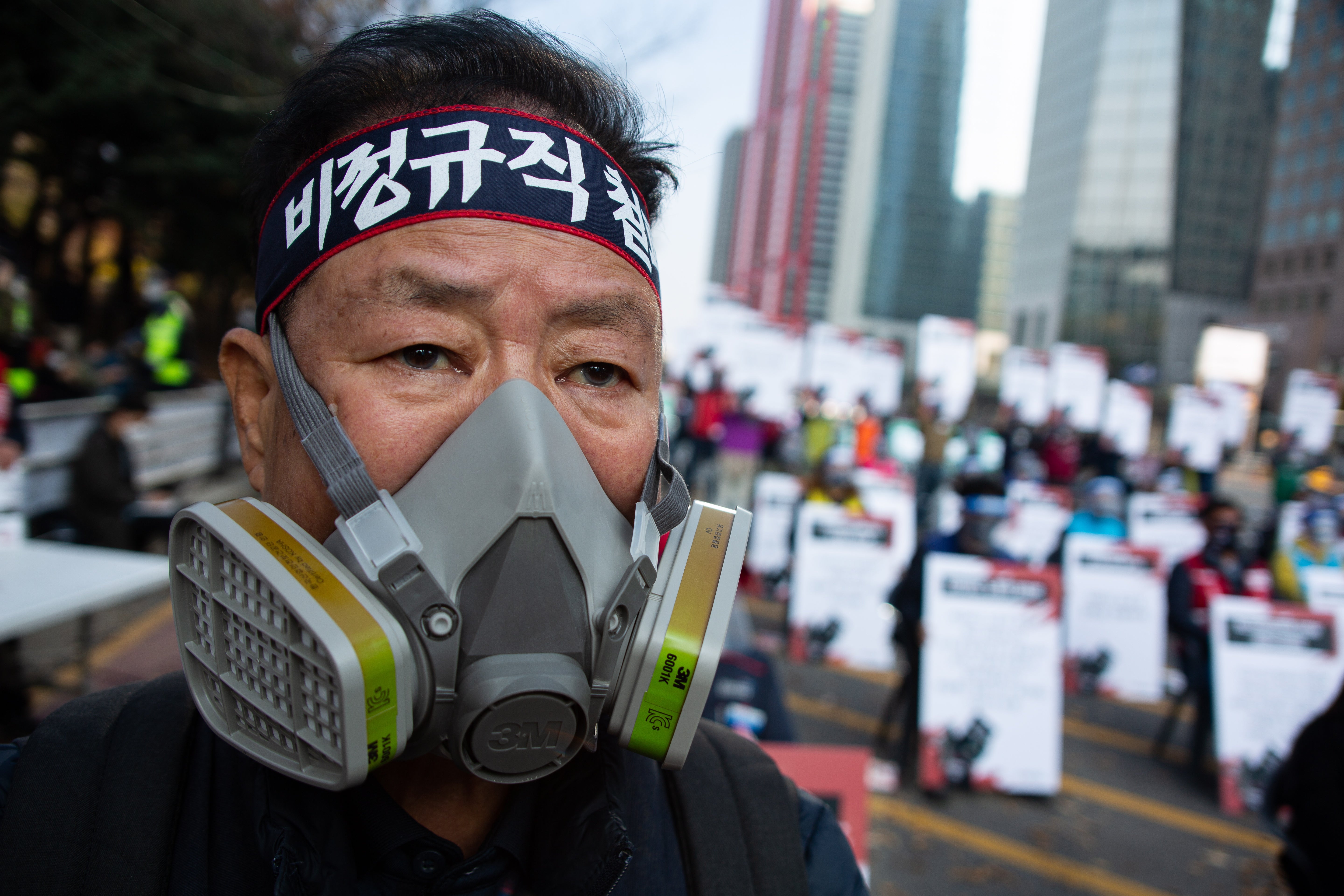Covid cases surging in Asian countries that previously contained outbreaks
Japan and South Korea are reporting record numbers of coronavirus infections, prompting their governments to impose strict new measures

Your support helps us to tell the story
From reproductive rights to climate change to Big Tech, The Independent is on the ground when the story is developing. Whether it's investigating the financials of Elon Musk's pro-Trump PAC or producing our latest documentary, 'The A Word', which shines a light on the American women fighting for reproductive rights, we know how important it is to parse out the facts from the messaging.
At such a critical moment in US history, we need reporters on the ground. Your donation allows us to keep sending journalists to speak to both sides of the story.
The Independent is trusted by Americans across the entire political spectrum. And unlike many other quality news outlets, we choose not to lock Americans out of our reporting and analysis with paywalls. We believe quality journalism should be available to everyone, paid for by those who can afford it.
Your support makes all the difference.After achieving relative success containing the first wave of the coronavirus outbreak, a number of countries across Asia are now seeing record-high infections, with Japan and South Korea facing mounting pressure to tighten their protective measures.
Tokyo is bracing for what could be its worst spell of infections yet, as Japan reported 2,189 new Covid-19 cases on Wednesday, crossing the 2,000 mark for the first time. Cases have been increasing steadily in the country, with daily recorded infections reaching over 1,000 for the past six consecutive days.
The country has seen a total of 121,247 Covid-19 cases to date.
Warning of a trade-off between stronger emergency measures and a slump in the economy, prime minister Yoshihide Suga said the situation does not yet warrant a state of emergency, despite the surge. Japan first imposed a state of emergency in April but lifted it in May to boost the economy and prepare for the Olympic Games.
Cases are also on the rise in South Korea, where 313 new daily infections were recorded on Wednesday, the highest number since late August. Clusters of infections have emerged in offices, medical facilities and political rallies, leading to daily case numbers over 200 for the past five consecutive days, according to the Korea Disease Control and Prevention Agency (KDCA).
The country has seen a total of 29,311 cases so far, along with 496 deaths.
In light of the rising cases, the government has ordered a tightening of social distancing measures in the greater Seoul area, with public gatherings of 100 people banned from Thursday and restriction on religious services and sporting events.
“Infections are now occurring simultaneously in every corner of our society, real life situations, unlike the past when there were large outbreaks from a specific place or group," vice health minister Kang Do-tae told a Covid-19 emergency meeting on Tuesday.
Indonesia, which with around 475,000 has had the most cases in Southeast Asia, had been seeing signs of improvement after a peak of 4,800 daily infections in September.
Cases had been steadily declining for more than a month, but are now snowballing, with a record of 5,444 new daily cases set last Friday.
The virus has spread to all major countries in the world, with the exception of nine far-flung Pacific Island nations that have not yet reported a single case. Across the globe, there are 55.6 million cases and at least 1.3 million people have died, with the US, India and Brazil contributing the highest number of infections.



Join our commenting forum
Join thought-provoking conversations, follow other Independent readers and see their replies
Comments